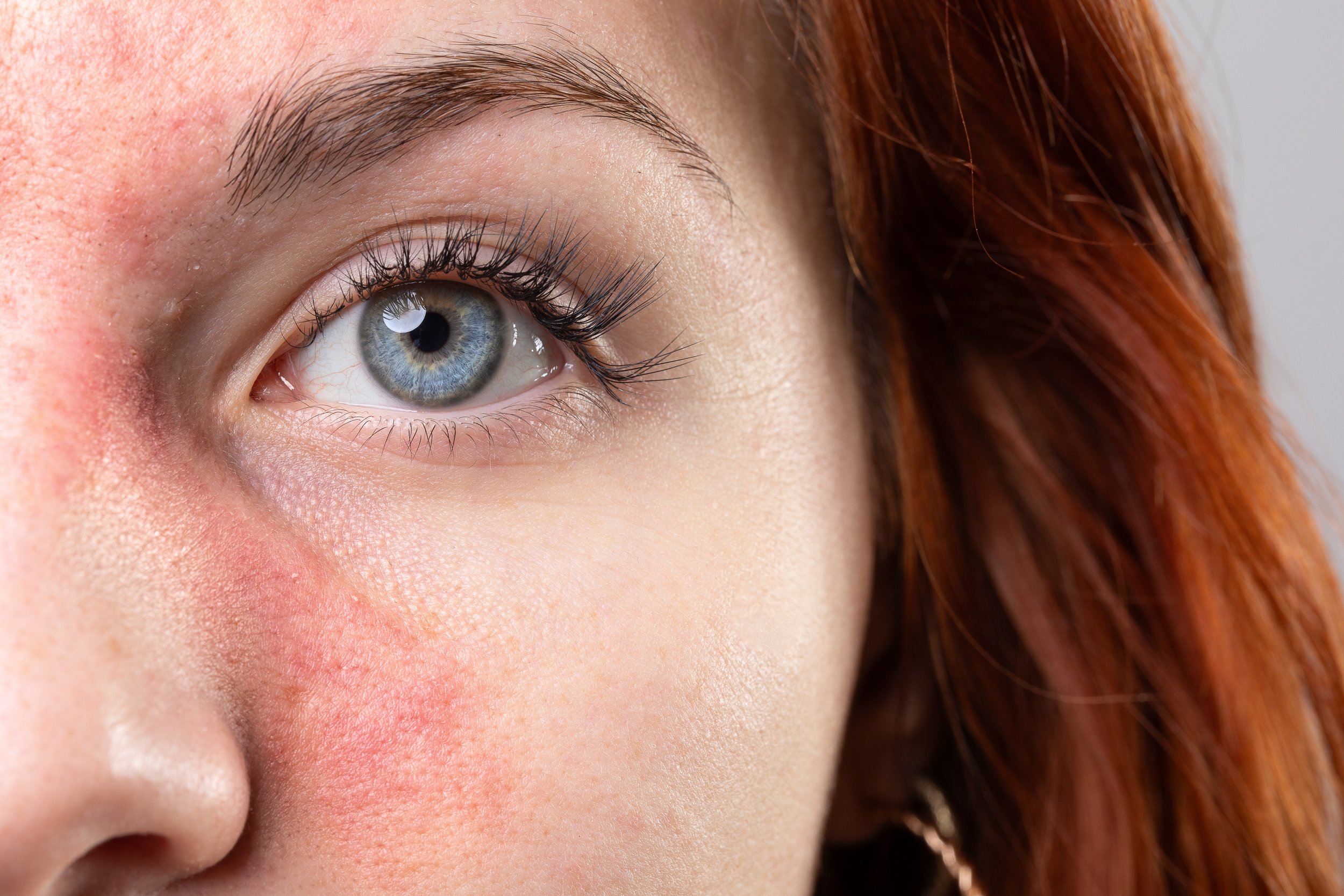
Rosacea / Sensitive Skin
Rosacea is a chronic skin disorder commonly effecting the cheeks, chin and nose. It is an inflammatory condition presenting with variable symptoms.
Initial symptoms present as flushing which becomes more frequent and eventually leads to persistent facial redness. Skin becomes hyper-reactive/sensitive due to sensitive and swollen blood vessels.
Sensitive skin is characterized by an increased reactivity to stimuli that typically wouldn't cause a reaction in most people. This can manifest as stinging, burning, itching, or pain in response to various triggers. It's often associated with a weakened skin barrier, making it more susceptible to irritation and inflammation.
Causes of Sensitive Skin:
Weakened Skin Barrier: A compromised skin barrier allows irritants and allergens to penetrate more easily, leading to sensitivity.
Environmental Factors: Exposure to sun, wind, and extreme temperatures can trigger sensitivity.
Chemical Irritants: Fragrances, dyes, and harsh chemicals in skincare and household products can irritate sensitive skin.
Underlying Skin Conditions: Conditions like eczema, rosacea, or allergies can contribute to increased skin sensitivity.
Age and Hormones: Skin can become more sensitive with age or during hormonal fluctuations.
Medications: Certain medications can have side effects that include skin irritation.
Stress: Stress can exacerbate skin sensitivity.
Who gets rosacea?
Rosacea is most common in adults between 30 and 50 years old.
It's more frequently seen in people with fair skin, blue eyes, and those of Celtic or Northern European descent.
While anyone can develop rosacea, it's less common in children.
What causes rosacea?
The exact cause is unknown, but factors like genetics, immune system issues, and environmental triggers are believed to play a role.
Triggers can vary from person to person and may include sunlight, heat, stress, alcohol, spicy foods, and certain skincare products.
Treatment and management:
Medications:
Topical and oral medications can help reduce inflammation, redness, and breakouts.
Lifestyle adjustments:
Identifying and avoiding personal triggers is crucial.
Gentle skincare:
Using mild cleansers, moisturizers, and sun protection can help manage symptoms.
Procedures:
In some cases, laser or light therapies can target visible blood vessels and reduce redness.
Recommended Treatments
-
IPL Photorejuvenation / Vascular repair
This non-ablative procedure uses pulsed light to produce a wound response to stimulation collagen and elastin production to reduce the appearance of fine lines and wrinkles.
-
Signature Facial
Keeping up a good skin barrier will help prevent reactions in skin conditions such as sensitive skin and rosacea. Our Signature facial will help keep your skin happy
-
DMK Enzyme Therapy
DMK Enzyme therapy is a treatment primarily known for its ability to detoxify and rejuvenate the skin. It is beneficial for various skin conditions including: Anti-Aging, Skin Tightening, Rehydration…
-
LED Light Therapy
Typically, LED light therapy is used as one component of a comprehensive treatment plan to treat rosacea / sensitive skin
LED light comes in different wavelengths including red, yellow, and blue, which are each suited to treating different skin concerns. LED light therapy is not the same as laser; it is a very soothing treatment with no side effects.

